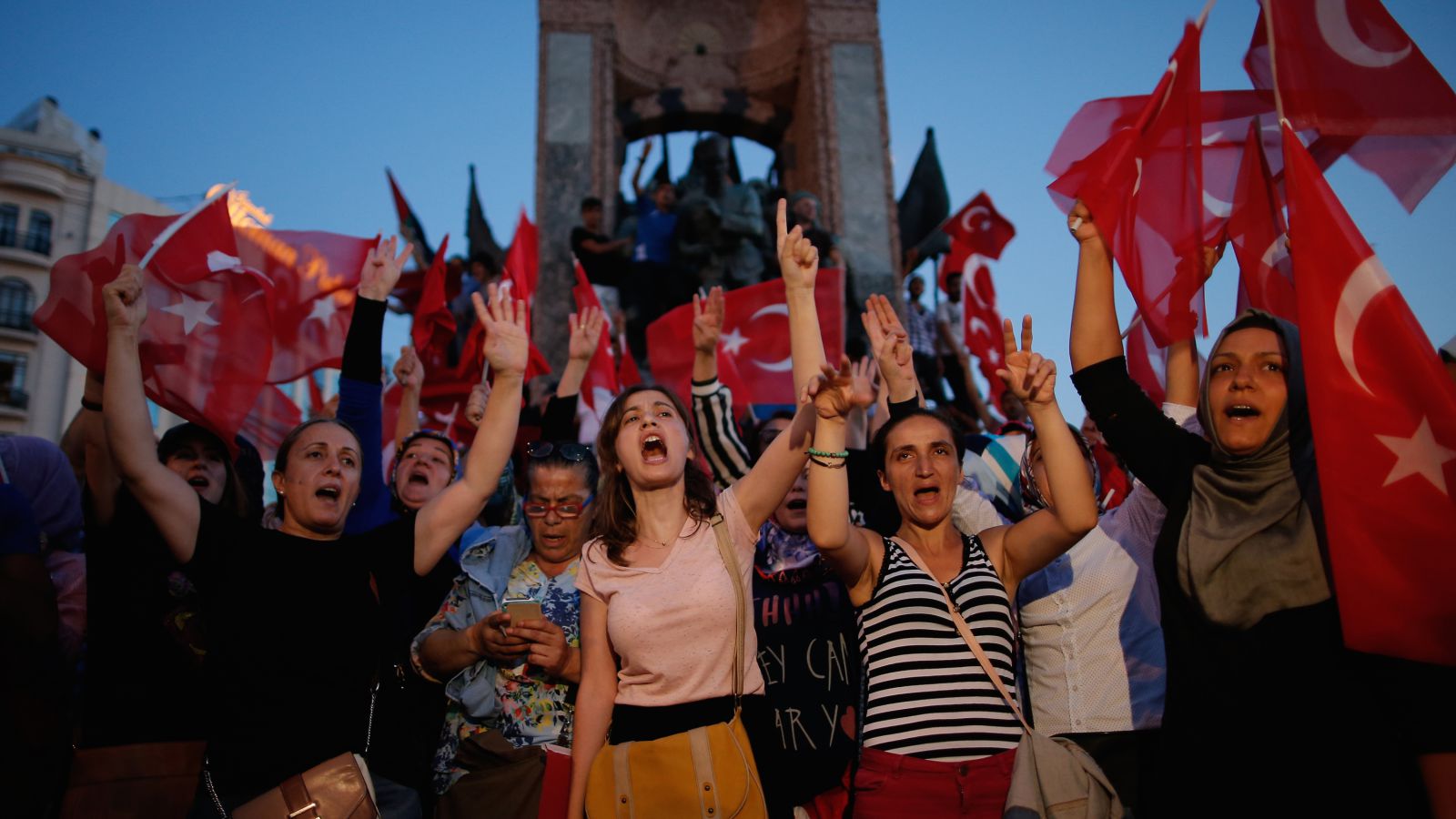Like many other coups, the one in Turkey last Friday had failure written all over it, right from the moment it began. There was no serious attempt to seize power or muzzle the administration, no leader ready to take over the cudgels, no communication between the plotters, no propaganda over the social media, and no ability to mobilize a mass revolt either within the armed forces or the society. It all boiled down to a group of hapless and ill-prepared soldiers trying to control a bridge over the Bosporus in Istanbul and unplanned targeting of some government buildings at Ankara.
A call from Turkish President Recep Tayyip Erdogan on his mobile phone’s FaceTime app was more than enough to urge his supporters take the streets for the unfolding of the resistance. That Erdogan will emerge as the principal beneficiary of the aborted takeover, carefully using it to further his agenda for an autocratic regime, doesn’t mean that he staged it. The fact remains that Turkey’s army is far detached from society, and it is entirely plausible that a handful of its officers believed that a largely disgruntled and polarized population would rise in rebellion if handed a cue. They hopelessly misread the situation and the error cost over 290 lives.
But mystery and instability in Erdogan’s Turkey have become the order of late, and there’s no surprise that conspiracy theories fly thick and fast. Erdogan, since his electoral setback in June last year, has led a country which is becoming increasingly violent. He managed to bounce back via the November election later and branded himself as the chosen one to avert mayhem. He tried to blame the coup, sans any evidence, on veteran cleric Fethullah Gulen, his former ally, now living in Pennsylvania. The pattern itself smells of gloom and intrigue.
But that’s not entirely unlikely of Erdogan, who doesn’t have his finger on the pulse of the Turkish people. More than 35 years after the last coup and nearly a couple of decades since the 1977 military intervention, the Turkish population abhors returning to a seesawing civilian and military rule that characterized their country between 1960 and 1980. They are now far more attached to constitutional order and democratic institutions. The army, which was a major pillar of the Turkish first President Mustafa Kemal Ataturk’s secular order, is now much weaker. All the main political parties slammed the attempted coup. Turks don’t want to walk backward, their growing anger against Erdogan notwithstanding.
The coup if it had succeeded, would have been a tragedy for the country. The Turkish President enjoys overwhelming support in the Anatolian heartland, in particular among the religious conservatives. Mosques all across the country were lit in the night as clerics echoed Erdogan’s call, requesting citizens to populate the streets. There shouldn’t be an iota of doubt that a similar call by a military-backed administration would have led to a Syria-like situation with Islamic insurgency and other associated hazards. The blow to whatever is left of the rule of law and democratic institutions in the Middle East would have been catastrophic.
US President Barack Obama called all quarters in Turkey to show “restraint” and abjure bloodshed. The problem is that his Turkish counterpart doesn’t bother to care as much. “Restraint” doesn’t exist in his dictionary. Rather than using the opportunity to cement fissures, the Turkish President may well do just the opposite. In fact, he has already vowed to carry out a rigorous crackdown on the dramatis personae behind the attempt to dethrone him. Around 6,000 people have been reportedly detained including army personnel and judges; and if prime minister Binali Yildirim is to be believed, everyone involved will have to “pay a heavy price.” Continued hunting of the so-called “Gulenists”—whoever Erdogan thinks to be—is likely on the cards. A similar fate awaits the Kemalist “deep state” patrons of the earlier secular order. Fault lines in an already divided society would become more prominent, and a secular Turkey won’t quickly forget the radical clarion calls that came from some of the mosques Friday night.
The Turkish President may swiftly push for constitutional reforms via a referendum and forge a presidency with overriding executive powers. He now has an excuse to say that only such powers can keep enemies at a distance. Many international relations experts believe that democracy survived in Turkey only to be slow-poisoned later. Support for Erdogan from the West, expectedly, comes through gritted teeth.
For Washington, its Middle East dilemma was never better illustrated than in Friday’s events. When the Egyptian General Abdel-Fattah el-Sissi orchestrated a coup in 2013 against the democratically elected President Mohammad Morsi, the US didn’t support the latter as it is now doing for Turkey. The Obama administration never used the word “coup” in Egypt. It, in effect, sided with the army generals under the pretext to restore order in the country.
True, Morsi was hugely unpopular. The coup had widespread support, and its fate was decided by the time Obama stepped in. But principles in the Middle East are a floccinaucinihilipilification. Strategic decisions often lead into choosing the least bad option, which in fact, has prevailed in Turkey’s case. That Erdogan is the least bad thing to happen to Turkey is anybody’s calling. An aborted coup doesn’t mean that democracy has won. The worst of this retributive autocrat may soon be unleashed in Turkey.
 The Holy Connection An Alternative Exploration of Existence
The Holy Connection An Alternative Exploration of Existence





